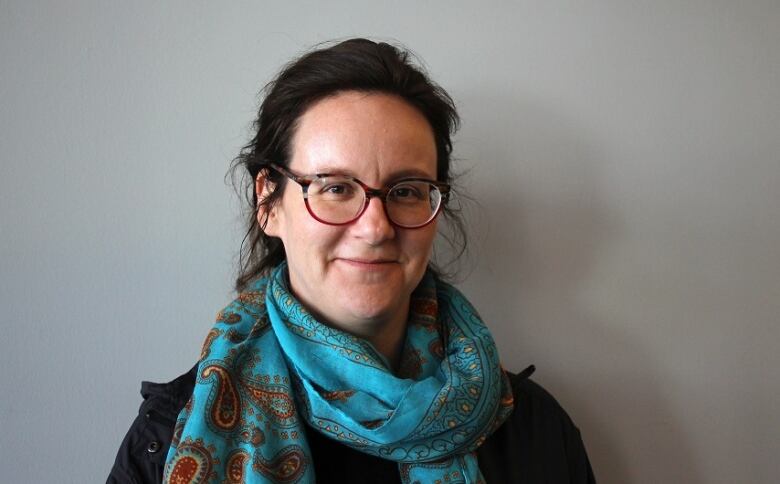'When can I hug my grandchildren?' and other top questions at region's COVID vaccine clinics
People also ask: Should I wait for a better vaccine?

Dr. Kelly Grindrod and the staff at the Region of Waterloo's vaccine clinics field many questions about the COVID-19 vaccine and rollout, but the number one question "far and away" is: When can I hug my grandkids again?
The short answer is: Not yet.
"It's a funny time that we're in right now," Grindrod, a pharmacist and an associate professor at the University of Waterloo's school of pharmacy, said Friday during a regional COVID-19 briefing. Grindrod offered a glimpse at the top questions she and others at the clinics are getting.
"We're vaccinating the oldest in our population as one of the priority groups. And what that means is there's going to be an awful lot of vaccinated grandparents. But at the same time, the last people who are going to be vaccinated are children. So they're going to be a lot of unvaccinated children."
But even though people in the region are starting to receive their first dose, Grindrod says they have to remember the vaccine doesn't work right away and no vaccine is 100 per cent effective.
"The first thing people often don't realize is, you're hopeful when you get the vaccine that you're the one that works for, that you're the one that the immunity takes. But there's no guarantees. You never know if you're the person it didn't work for," she said.
She noted most people who get the vaccine will be protected two to four weeks after they get the shot.
"That's a long time, and that's after Easter," Grindrod said. "So one of the big questions we're getting right now is can I hug my grandkids at Easter? Can I see my grandkids and the majority of people have not been vaccinated long enough to have that immunity, even if they were the ones who were lucky enough to actually have immunity."
Dr. Hsiu-Li Wang, the region's medical officer of health, added that people need to continue following public health guidelines for several more months. That includes washing hands regularly, wearing face coverings and avoiding social gatherings for now.
"Spring is here the weather is improving and so many in our community are filled with hope for what comes next. But we must not let our guard down," Wang said. "For all upcoming holidays or celebrations, I continue to recommend you celebrate only with those in your immediate household."

When will kids get the vaccine?
Vaccine trials are just getting started for children.
"We should see now in the spring and through the summer data coming in telling us: is the vaccine safe in children. But actually, more importantly, what is the right dose that we give to children? That's the big question," Grindrod said.
"Optimistically, I hope that we start seeing them eligible for vaccines sometime in the summer, maybe late summer."
Are the vaccines safe?
Pfizer-Biotech, Moderna and the AstraZeneca vaccines are "all are very effective at preventing severe illness, hospitalization and death."
And that, Grindrod says, is the goal. While a cold will make people feel sick for a few days, it's less likely than COVID-19 to cause severe illnesses which could lead to people being admitted into hospital and possibly dying.
"We think of some [vaccines] as being better than others, but all of them are really, really wonderfully effective for severe illness, hospitalization and death," she said.
Should I wait for a better vaccine?
Grindrod said another question she's often askedis: IfI have a choice, should I choose Pfizer or Moderna or is it OK to get AstraZeneca?
She says the AstraZeneca vaccine has been in the news a lot. On Monday,Canada's vaccine advisory committeerecommendedimmediately suspending the use of the AstraZeneca-Oxford COVID-19 vaccine in Canadians under 55following reports of rare but potentially fatal blood clots in Europe that appear to be connected to the shot. There have beenno reported cases of rare blood clots after vaccinations in Canada.
"The vaccine itself is safe and effective. The vaccine itself actually does a very, very good job of protecting against severe illness, hospitalization and death. And actually for those outcomes, it appears to be pretty much the same as Pfizer and Moderna," Grindrod said.
She said as a third wave of the virus begins, it's more important for people to be protected.
"When people ask this question, it's important to reframe it. People ask, should I choose between vaccines? But we're having to reframe it often, saying you're not choosing between vaccines, you're choosing between getting vaccinated or waiting unvaccinated in a third wave."
Grindrod says people should take the first vaccine they can get.
What happens after you've received your second dose?
Grindrod says for many individuals, there won't be much in the way of follow-ups, although people with health concerns or who are older will likely have ongoing conversations with their doctors and pharmacists.
"There is a large, ongoing population monitoring assessment to watch for any potential side effects, any concerns like that," she said, which doctors and pharmacists report.
She said the next question will be whether people will need another booster of the vaccine, and that's just not known yet.
"Long-term research actually isn't really about safety, it's about efficacy and how long these vaccines will work," she said.
"As long as there is spread, there will be variants and as long as there are variants, we're going to have to be watching to see if our vaccines are working."
That raises the question: Could there be a third dose that comes a year from now, five years from now?
"We have no idea," Grindrod said but added that will become more clear in the coming weeks and months.












_(720p).jpg)


 OFFICIAL HD MUSIC VIDEO.jpg)
.jpg)



























































































